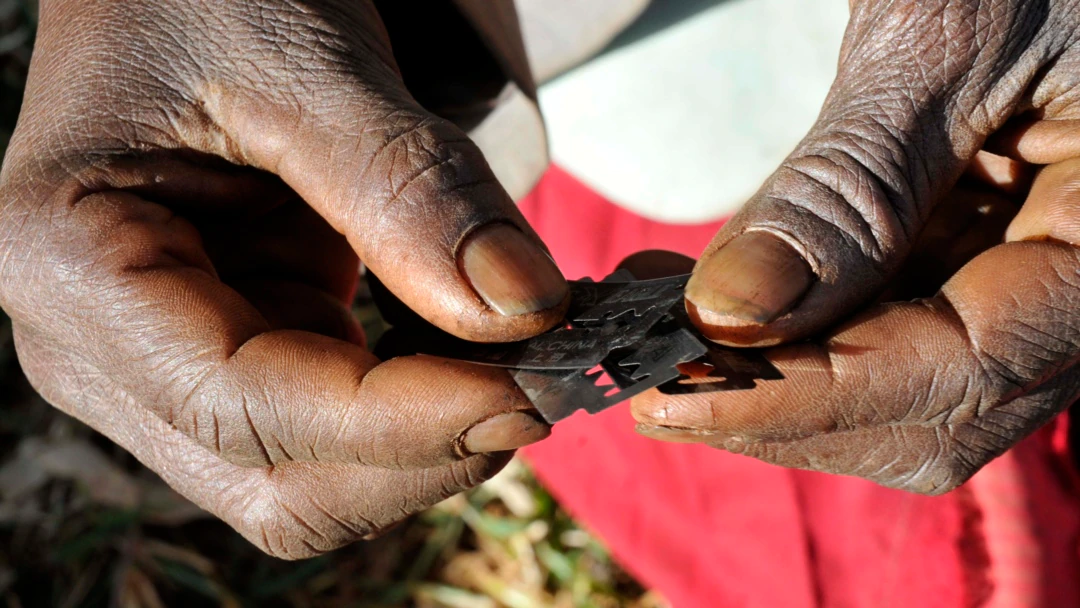We all Have a Role to Play to End Early Child Marriages
Child marriage is considered a human rights violation, this negatively influences rights to health, education and protection of children.
In a baseline research study in Kenya it shows that first marriage has increased over time from 19 to 20 as the mean age of first marriage among women aged 25 to 49.
Child marriage is a global issue. It is fuelled by gender inequality, poverty, social norms and insecurity, and has devastating consequences all over the world.
Early marriages marks the beginning of frequent and unprotected sexual intercourse, which is a greater risk of Sexually Transmitted Diseases (STI), HIV, and early teenage pregnancy.
It has also led to Gender Based Violence (GBV).
Recently, many cases have been reported of violence in marriages leading to death.
Due to early marriages, many teenagers lives are at risk due to marriage and pregnancy complications, many women age 15 to 19 also end up losing their lives during child birth.
This has brought attention to the communities and Kenyan government to fight early marriages and protect women and girls’ rights.
Lack of sexual education among teenagers is one problem leading to early marriages, teenagers are not always educated on sexual relationships and methods so as to avoid unplanned pregnancy. The young adults should learn how to abstain or use contraceptives.
Child marriage is rooted in gender inequality and the belief that girls and women are inferior to boys and men. It is made worse by poverty, lack of education, harmful social norms and practices, and insecurity. Its drivers vary between communities and it looks different across the world.
Worldwide, 12 million girls are married before the age of 18 every year; that is 23 girls every minute; nearly 1 every 3 seconds
And so the community, parents and teachers should have lessons to teach both boys and girls on sexual relationship as a whole.
Poverty has made some parents to ‘sell’ their children into marriages so as to pay their debts and escape miserable states, forcing children to do something they don’t wish to do, and has thus brought emotional distress to them, being not able to cope with all the difficulties mentally in marriage. Some of the girls end up committing suicide.
Girls who marry young are often denied a range of human rights: many must discontinue their education, face serious health risks from early and multiple pregnancies, and suffer sexual and domestic violence. Agenda 2063, the African Union’s 50-year action plan for development, recognizes that child marriage is a major impediment to regional development and prosperity. Countries lose out on potentially enormous social, economic, and political contributions these girls could make if given the right opportunities from the start.
Child marriage directly violates rights to health, education, equality and non-discrimination, consensual marriage, employment, and to live free from violence and discrimination, which are enshrined in international human rights standards and institutions, including the Convention on the Elimination of All Forms of Discrimination against Women (CEDAW) and the Convention on the Rights of the Child (CRC).
Child marriage also violates the rights of women and girls that are enshrined in regional treaties.
These include the Protocol to the African Charter on Human and People’s Rights on the Rights of Women in Africa (the Maputo Protocol), which calls on governments to “enact appropriate national legislative measures to guarantee that: the minimum age of marriage for women shall be 18 years”; and the African Charter on Human and Peoples’ Rights (the African Charter), which calls on states to “ensure the elimination of every discrimination against women and also ensure the protection of the rights of women and the child as stipulated in international declarations and conventions.”
Child marriage is closely linked to early childbearing with consequences that can be fatal.
Complications resulting from pregnancy and childbirth are the second leading cause of death among adolescent girls aged 15-19 years old globally [HRW] Research shows that girls aged 10-14 are five times more likely to die during delivery than mothers aged 20-24; girls aged 15-19 are still twice as likely to die during delivery as women aged 20-24.
Women and girls need support both from the state and society to protect their rights to live freely with no risks at hand.
Girls should be empowered to avoid early marriages and early pregnancies. Empowering young girls by providing quality protection, health and education can bring a lot of change in the society.
The Facts:
- According to the UN, 37,000 girls under the age of 18 are married each day. We now have the greatest number of married girls and girls at-risk of child marriage than ever before
- 1 in 3 girls in the developing world are married before 18; 1 in 9 are married before the age of 15
- If present trends continue, more than 140 million girls will be married before the age of 18 in the next decade
- Globally, almost 400 million women now aged 20-49 were married before the age of 18
Consequences of Child Marriage:
- Child marriage effectively ends a girl’s childhood, curtails her education, minimizes her economic opportunities, increases her risk of domestic violence, and puts her at risk for early, frequent, and very high-risk pregnancies
- Girls under 15 are five times more likely to die in childbirth than women in their 20s and face higher risk of pregnancy-related injuries, such as obstetric fistula
- Child brides are often unable to negotiate safer sexual practices and are therefore at a higher risk of HIV and other sexually transmitted infections
- The negative consequences of child marriage reach beyond the girls themselves: children of child brides are 60 percent more likely to die in the first year of life than those born to mothers older than 19, and families of child brides are more likely to be poor and unhealthy













